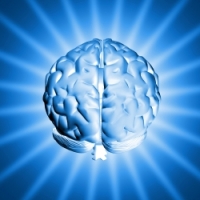Cognitive Biases that Affect Judgment and Decision Making

Cognitive biases are biases in judgment and decision making that have been demonstrated in research in psychology and behavioral economics. Wikipedia lists several dozen such biases. It’s amazing, really, that we accomplish as much as we do as successfully as we do given our cognitive biases.
In addition to the confirmation bias and the hindsight bias, which I’ve previously written about, here are three others that you may have experienced personally or observed in your coworkers.
First, the availability bias. Many of the flaws in our thinking stem from this bias. That is, we tend to remember the first, last, and peak moments of memorable or vivid events and tend to overestimate the probability of such events, especially when they are magnified by media coverage. Thus, although shark attacks are rare, when they happen, we may see them out of proportion to their actual occurrence and avoid beaches that are perfectly safe.
A second bias is the observational selection bias. This is the bias that we experience if we suddenly start noticing things we didn’t notice before and wrongly assume that the frequency has increased. I never noticed all the red cars on the road until we bought a red one; then, red cars were everywhere. Noticing something more often because you’re paying more attention isn’t a problem as long as you don’t wrongly assume the frequency has increased when it hasn’t.
A bias related to the previous two is the negativity bias. We seem to be much more attuned to negative experiences than positive ones and tend to be more susceptible to seeing the downside in a situation before (or instead of) the upside. This bias may be survival related: Our bodies generally react more intensely to negative stimuli than to equally strong positive ones, and negative stimuli produce more neural activity than do equally intense positive ones.
As a result, the negative impact of setbacks in your work may affect your motivation much more strongly than the progress you’ve made. It's just easier to remember the things that go wrong each day than the things that go right. Jeff Haden, author of this Inc. article on banishing the negativity bias, quotes his father as saying, “It takes five pats on the back to make up for one ‘Oh, crap.’”
We are the sum of our biases, and there’s little chance of eliminating all of them. But by being aware of them, you may be able to prevent them from causing you to misjudge a situation or make an unsound decision. Even better, take explicit steps to avoid them, such as identifying three specific good things each day to counter the negativity bias.
Which of these biases have you encountered at work?

